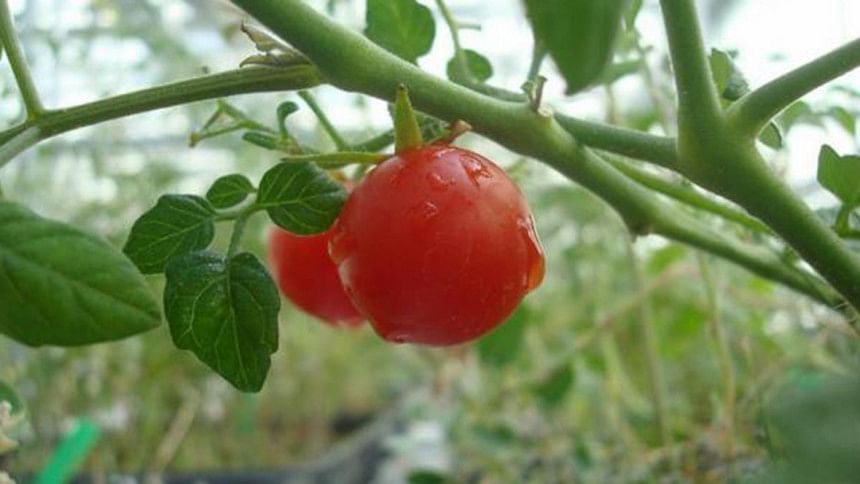First tomatoes, peas harvested from mock Martian farm

The second round of the Martian farming experiment at Wageningen University and Research Centre in the Netherlands has proven more successful than the last.
According to UPI, researchers this week announced a bountiful harvest from soil designed to mimic the makeup of Martian soil.
Harvested crops included peas, tomatoes, garden rocket, rye, radish and garden cress reports UPI.com.
According to scientists, the lessons they learned in round one allowed for greater success during the second iteration of the experiment.
"We used trays instead of small pots and added organic material (fresh cut grass) to the Mars and moon soil simulant," researcher Wieger Wamelink said in a press release.
"This solved the problem we had with watering in the first experiment and also added manure to the soils."
Researchers said the Mars soil simulant generated biomass on par with the Earth control soil, and was equally productive when properly prepped and watered.
According to UPI, Scientists also tested soil made to simulate lunar soil. Moon soil simulant produced much less biomass and was only able to support spinach.
The growing experiments were conducted in glass containers and under tightly controlled conditions. Constant temperature, humidity and light conditions were made to mimic growing conditions on Earth.
"This is because we expect that first crop growth on Mars and moon will take place in underground rooms to protect the plants from the hostile environment including cosmic radiation," said Wamelink.
While the first two experiments focused on crop viability, the next will look at edibility and food safety. Because Martian soil contains heavy metals like lead, arsenic and mercury, researchers need to study toxin levels in harvested crops, reports UPI.com

 For all latest news, follow The Daily Star's Google News channel.
For all latest news, follow The Daily Star's Google News channel. 







Comments